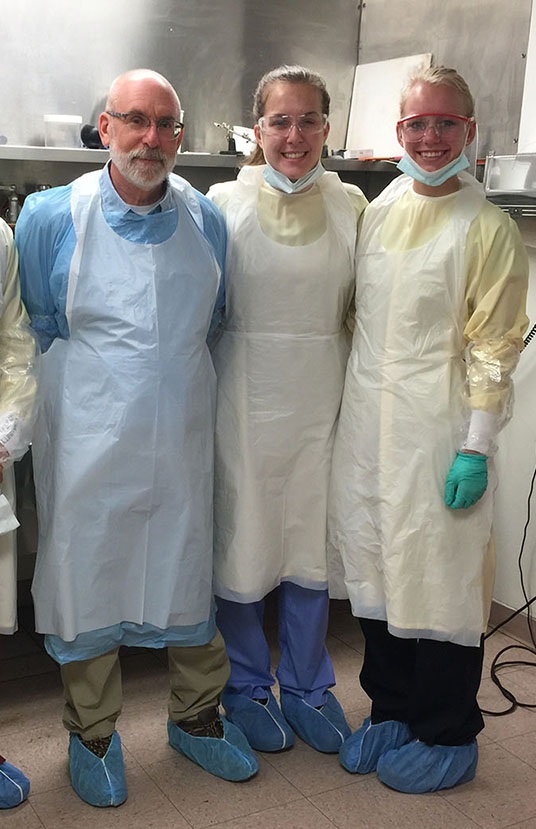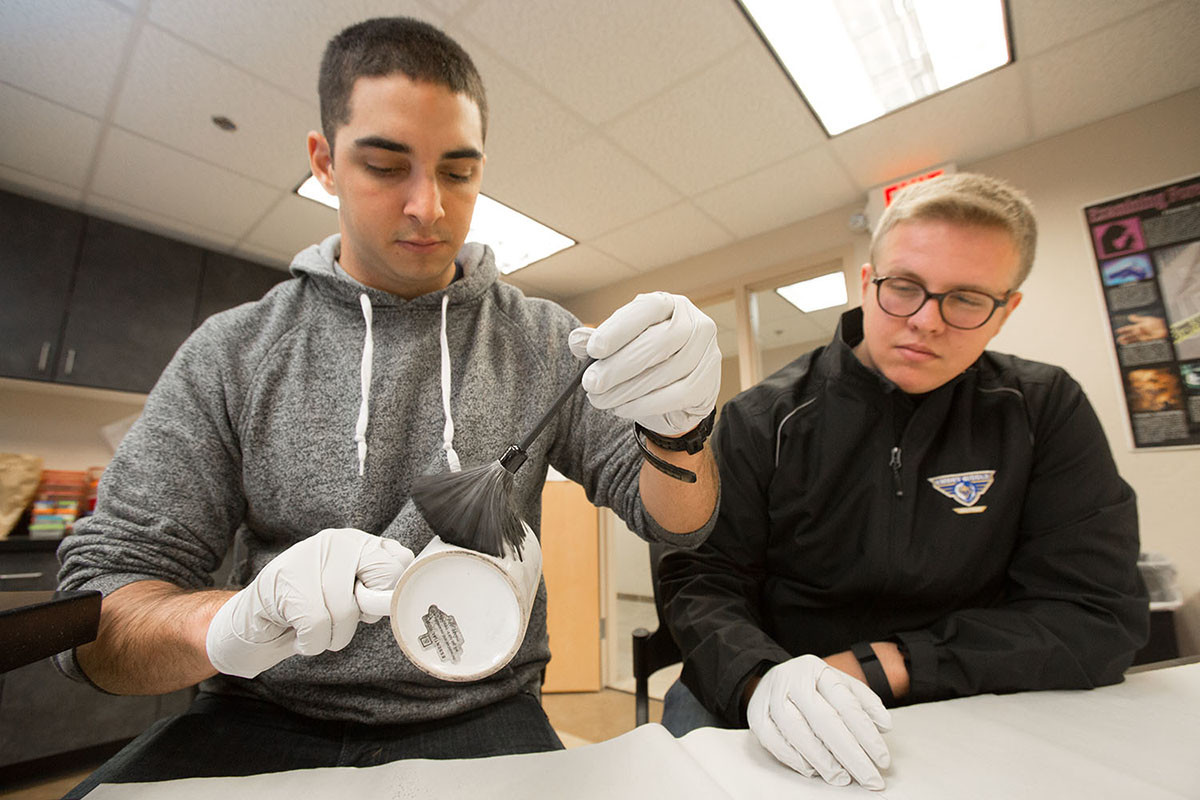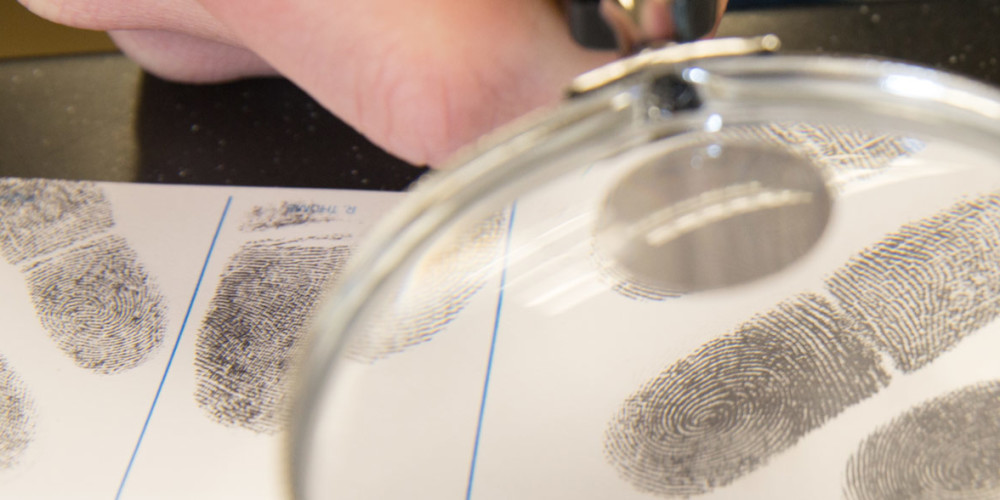Danica Murphy started her summer internship staring at a dead body. “The victim had been dead four days. There was skin slippage, dried blood, a mutilated face, and 46 stab wounds,” she writes in a blog about the experience. It may sound gruesome, but this is exactly what the forensic biology major signed up for when she interned with a private pathology practice in Grand Junction, Colo.
Murphy’s field of study is one of three new undergraduate forensics programs at Embry-Riddle’s Prescott Campus. Forensic biology, forensic accounting and fraud investigation, and forensic psychology all debuted in 2015. The programs include a strong focus in hands-on learning and cover the gamut of investigation science. Depending on their major, students will be prepared for certification by the American Academy of Forensic Scientists, the Association of Certified Fraud Examiners or the American Board of Forensic Psychologists.
Body Language
Foundational to crime scene investigation, forensic biology students spend time analyzing blood spatter, comparing DNA and tracing bullets, as well as finding and identifying trace materials and microbes, says Hillary Eaton, biology program chair. “By the end of one semester, they’ll have processed crime scenes, dusted for fingerprints, and conceptualized the crime in order to link evidence to potential suspects,” she says.

Forensic biology is also designed to meet all the requisites for medical, dental, pharmacy and law programs. Murphy is one forensic biology student looking to meet her pre-med requirements. She found an application for her undergraduate study right away. “I believe my coursework prepared me for my internship because I had learned and understood how death investigations were supposed to be conducted,” she says.
Un-Cooking the Books
Forensic accounting and fraud examination isn’t usually portrayed in TV dramas, but that doesn’t make the field less significant. “This is an important field to work in because through fraud there are hundreds of millions of dollars stolen each year. Fraud affects not just the companies who are victimized, but also the consumers, employees and shareholders,” says Angela Roda, a U.S. Army veteran enrolled in the forensic accounting program. Roda will participate in summer 2017 in a finance department internship at Raytheon Missile Systems.
In addition to an in-depth understanding of accounting and auditing, students can take courses in interviewing and deception, says Cindy Greenman, assistant professor of accounting. They also get to work with consulting groups that perform fraud examination for companies in the Prescott, Ariz., area.
“They’ll go through human resources, payroll, financial statements, physical security, everything,” explains Greenman. “The students are taught the red flags to look for, and then they run the consulting job. They do the analytics. They’ll put together a complete report and present it to the client.”
The students learn to recognize revenue schemes, conflicts of interest, collusion and fraud. “We do a lot of case studies looking into Bitcoin, Enron, WorldCom, and Bernie Madoff,” Greenman says. “We look into what people were doing, how they got caught, and why they weren’t caught sooner.”
Probing Dangerous Minds
The intersection of psychology and the legal system is where you’ll find forensic psychology, says Erin Bowen, chair of the behavioral and safety sciences department. But it goes beyond crime and the courtroom. “Forensic psychology looks at how laws and norms are formed and what compels people to fight against them. That includes looking into crime, punishment, recidivism and correction.”

The Prescott Campus’ College of Security and Intelligence, the nation’s first of its kind, provides students with knowledge of the U.S. legal system and investigative methods. The forensic psychology program expands on that foundation and combines it with the fundamentals of psychological science.
“A lot of people have the misconception that psychology is talking about your feelings,” Bowen says. “Our students develop investigative, operational skills. They’ll understand the biopsychosocial underpinning of why people follow or break laws. They’ll be able to make behavioral predictions, design psychological tests, and know how to interpret the results.”
Regardless of which forensics field students choose, they’ll find demand for their newly attained skills and knowledge. There’s a backlog in independent and government crime labs across the country due to a lack of qualified applicants, says Eaton.
